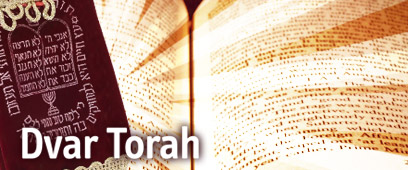

'The Lord shall be my God'
Photo: Ata Awisat
Jacob then made a vow, saying, “If God remains with me, if He protects me on this journey that I am making, and gives me bread to eat and clothing to wear, and if I return safe to my father’s house - the Lord shall be my God. And this stone, which I have set up as a pillar, shall be God's abode; and of all that You give me, I will set aside a tithe for You.” (Genesis 28:20-22)
In fact, the expression “the Lord shall be my God,” echoes a similar expression in God’s promise to Abraham, where we find: “I will maintain My covenant between Me and you, and your offspring to come, as an everlasting covenant throughout the ages, to be God to you and to your offspring to come” (17:7).
Commentators have long struggled with this prayer. How is it possible – after a marvelous dream in which angels ascend and descend a ladder from heaven to earth, and the Divine promise “I am with you: I will protect you wherever you go” (28:15) – that Jacob can present God with the condition: If you keep your word, then “the Lord shall be my God”? Could he have imagined, even for a moment, the Lord would not be his God?!
This leads Rashi to explain (following the midrash) that this is not part of the vow, but rather part of the condition for the vow, which means “that his name shall be upon me, so that there shall be no flaw in my offspring,” as if to say that if God protects me, and returns me safely, and grants me worthy children who will not stray from the path (like Esau), then I will succeed in establishing “God’s abode” in place of this pillar, and I will set aside a tithe “of all that You give me.”
Previous Portion
Rabbi Dr. Yossi Turner
We've been taught that biblical Jacob was a righteous man, but is it possible that as a fetus he was a fraud?
We would have expected that from that point onward, Abraham would have declared God to be his God. But, surprisingly, this is not the case. Even though God is revealed to Abraham by the Ineffable Name (15:7), and as El Shaddai (17:1), Abraham continues to refer to God as “the God of Heaven and the God of Earth” (24:3).
In the name of the father
Only Abraham’s servant refers to God as “the God of my master Abraham” (24:12,27,48). That is also how God is revealed to Isaac: “I am the God of your father Abraham” (26:24). In his book Mikra Ki-Feshuto, the Jewish commentator Arnold Ehrlich notes the following interesting fact:
Just as a family is not referred to by the son’s name until the father dies and the son inherits, so God is not referred to by the name of a member of Israel until his father has passed on and he has taken his place. (Commentary to Genesis 26:24)
Therefore, Ehrlich explains, as long as his father lives, Jacob can only conditionally refer to God as his God. Indeed, we find that, in general, God, as well, reveals Himself only by reference to a person’s ancestors. Here, in our parasha, God appears to Jacob as “the God of your father Abraham and the God of Isaac” (28:13). Speaking to Laban, Jacob refers to God as “the God of my father, the God of Abraham” (31:42).
Even in God’s unique revelation to Moses in the burning bush, we read: “I am the God of your father, the God of Abraham, the God of Isaac, and the God of Jacob” (Exodus 3:6). According to Rabbi Joseph B. Soloveitchik, this expression reflects our first consciousness of God, an awareness that we experience only through our parents. Initially, we can “know” God only through the experience of our childhood.
At the beginning of his difficult, treacherous journey, Jacob receives God’s promise in a wondrous revelation: “I am with you.” Surely now, on this frightening, lonely path to an uncertain future, he feels – more than his fathers could ever have felt – the desire to embrace God as “his” God.
But he knows that the time has not yet come to speak of his God. He could not do so in exile in Haran. However, as soon as he returns to the Promised Land, having “striven with beings divine and human,” and after receiving the name “Israel” – the name that symbolizes God’s promise of his national future – only then does he “set up an altar there,” and call it El-elohe-yisrael (God, God of Israel)” (33:20).
In the Book of Genesis, we see the application of the proverb “the deeds of the fathers are a sign for the sons,” for in the Book of Exodus, the term “God of Israel” will reappear at the first meeting with Pharaoh: “Thus says the Lord, the God of Israel: Let My people go” (Exodus 4:1).
This will pave the way for a renewed call in the great theophany at Sinai, when God addresses every person in Israel, beginning the Ten Commandments with the words “I am the Lord your God.” It is a call to each of us to make the God of our ancestors our God.
Dr. Pinchas Mandel is a lecturer in Midrash at the Schechter Institute















